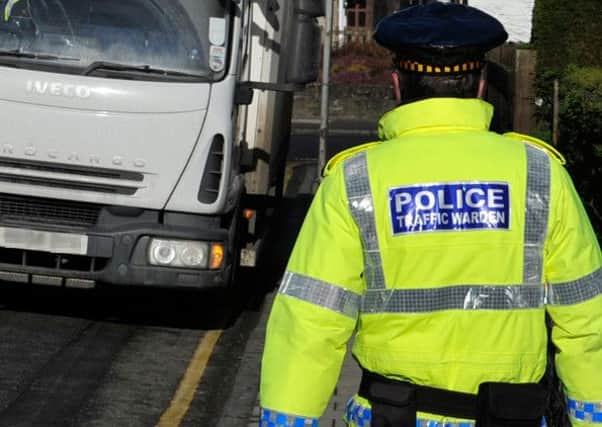Scots drivers at risk of private parking firm fines


This follows the abolition of police wardens, whom councils are likely to replace in many parts of the country with “target-driven firms who only have profit in mind”, the Tories said.
A similar system south of the Border resulted in a “free-for-all” on the part of wardens, according to the AA.
Advertisement
Hide AdAdvertisement
Hide AdBut the claims have been rejected by parking firms, who insist it is “illegal” for councils or firms to operate a target-driven regime.
A Freedom of Information request by the Tories has found that, since 2008, police wardens have issued 225,664 fines across the country to motorists parked illegally.
Spokesman Alex Johnstone MSP said: “There is a grave danger that, with police no longer in charge of parking enforcement, this will become a gravy train for parking wardens.
“We already see it in Edinburgh, and we don’t want the whole country to reach that stage.
“Police wardens, who would act responsibly and when it was necessary, could be replaced by target-driven firms who only have profit in mind.
“It will also hit town-centre businesses, whose customers will be too scared to leave their car outside for even a minute.”
Wardens from private company NSL work in Edinburgh 24 hours a day. The firm issued 388,039 tickets in the capital between 2010 and 2012 – but it emerged that about one in six of these were issued wrongly.
The concerns have been dismissed as “scaremongering” by Patrick Troy, chief executive of the British Parking Association (BPA).
Advertisement
Hide AdAdvertisement
Hide AdHe said: “Scottish local authorities taking on parking enforcement powers do so to tackle congestion and improve safety on our roads. Parking enforcement powers cannot by law be used to generate revenue.”
The organisation says that any surpluses generated above and beyond the cost of enforcement must be used for transport-related issues and cannot be used more generally by the local authority, in line with traffic law.
Mr Troy went on: “It would be unlawful for local authorities to set ticket targets for their parking attendants. If they use private firms, the firms will not be incentivised by the issue of tickets but by other performance requirements like numbers of visits to locations.
“Although the shift from police enforcement to local authority enforcement could have been planned better by the government, actually motorists in receipt of local authority tickets have a more user-friendly means of redress if they think the ticket is unfair.”
But Luke Bodset of the AA said there had been instances in England where councils had ordered wardens to adopt a more hardline approach to collecting fines, to maintain “the money coming into the coffers”.
There are also some concerns about whether private firms behave in this way to raise revenues for wages, he added.